Latest News
Swedish think tank takes stock of Afghanistan’s tourism sector
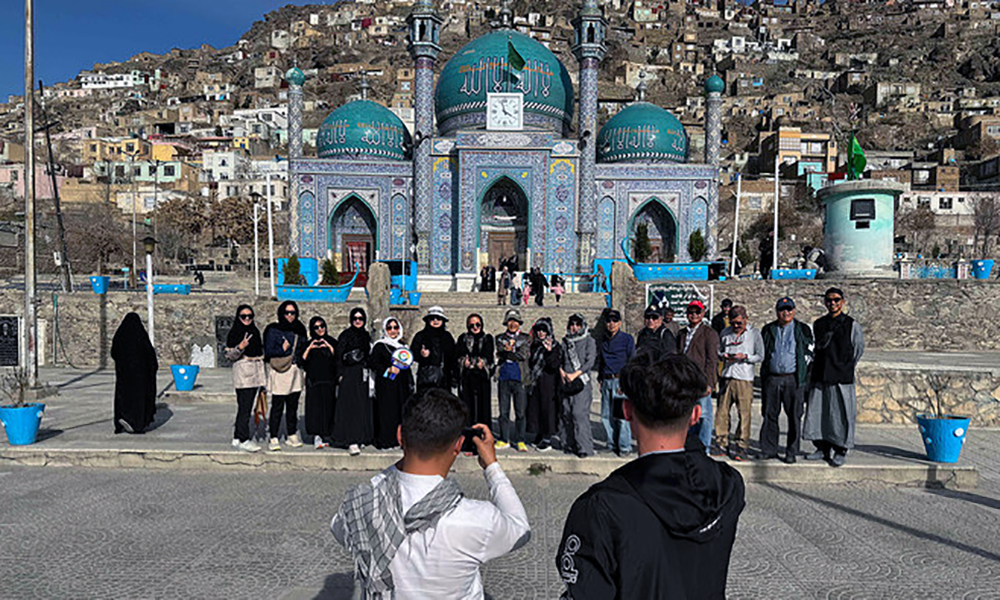
Afghanistan is fast becoming an attractive tourist destination for foreigners given its rich history, culture and geographic location.
However, decades of war kept the country largely closed off to tourists, but now, two and a half years after the political change, tourist numbers among foreigners are growing.
Prior to the wars of the past 40 years, Afghanistan was a popular destination, with 90,000 foreigners having visited the country annually in the 1970s.
Today, however, tourists are starting to return.
The Stockholm-based Institute for Security and Development Policy writes that Afghanistan contains plenty of historical sites, multi-ethnic traditional cultures, multi-ethnic language settings, rich literature of Pashto, Dari, Uzbek, Turkmen, different social contexts, and terrific landscapes and locales including four seasons of the year for overseas visitors.
The country is slowly seeing a return of tourists but there are still some multidimensional challenges, including the absence of basic facilities and modern infrastructures, but these can be developed by the right kind of management, the ISDP reports.
The first foreigners to arrive in Afghanistan during this uptick in visitors came from European and Western countries such as the UK, Germany, France, the US, Australia, Canada, Spain, Finland, Sweden, Hungary, Poland, New Zealand, Belgium, Greece, Ireland, Netherlands, Italy, Turkey, Mexico, Columbia, Argentina, Portugal, Ukraine, and Chili.
In addition, visitors from Asian countries including India, Pakistan, Iran, China, Japan, Russia, Thailand, Philippines, and other countries visited Afghanistan.
ISDP stated that when these tourists arrive in Afghanistan, they tend to wear traditional Afghan clothes, eat Afghan food, and learn about Afghan traditional customs, which is an excellent route for cultural growth.
The steady growth in foreign tourists to Afghanistan is primarily thanks to improved security and given the current situation, this sector looks likely to carry on growing – which will aid the country’s weak economy and lead to the creation of jobs and opportunities for Afghans.
However, the ISDP points out that Afghanistan needs a comprehensive policy framework to support and promote the tourism industry and cultural constituency of Afghanistan to attract more foreign tourists annually.
As such, the Islamic Emirate of Afghanistan (IEA) should issue tourist visas for free and provide full security in the country for tourists to travel without any fear or threat.
Additionally, foreign tourists need facilities of value and convenience; national and local maps, travel guides, transportation, safety and security, suitable options for accommodation and upscale restaurants.
ISDP writes that despite economic challenges in Afghanistan, the government needs to revive the tourism industry and seek funds from UNESCO to promote the cultural and historical values of the country.
It is important to rebuild and repair ancient monuments, sculptures, old citadels, reputed mosques, ancient shrines and gardens, and other landmarks and archaeological remnants of ancient kingdoms, empires, and governments.
The government also needs to provide facilities around these sites, for example, roads, parks, restaurants, and entertainment services.
For this purpose, private and public sector partnerships are required to transform tourism back into a viable economic industry, ISDP writes.
A functional, specialized web portal should also be developed focusing on Afghanistan tourism and culture industry to offer an accurate picture.
Latest News
Turkish intelligence captures a Daesh member near the Durand Line
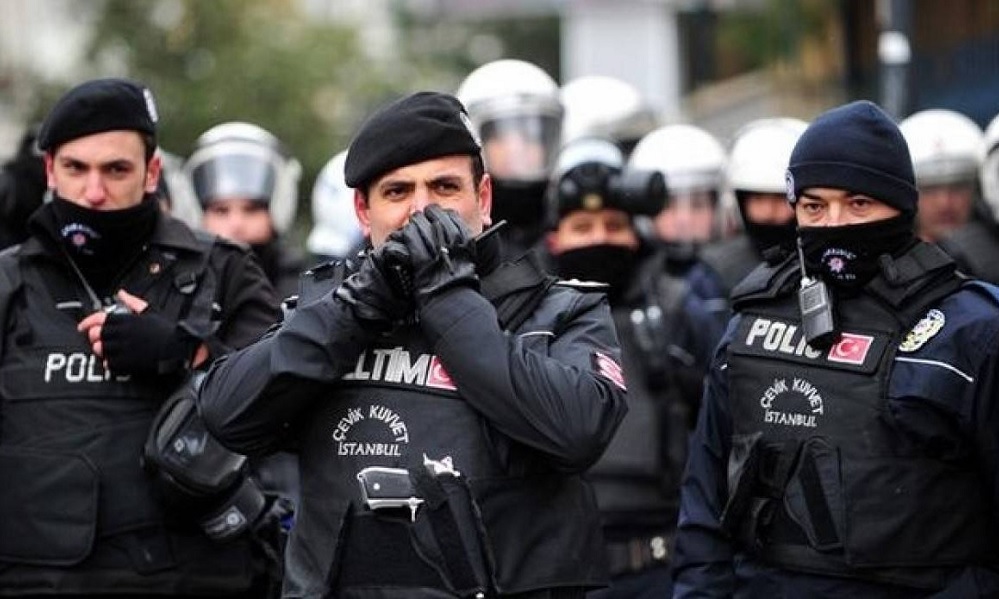
Turkish intelligence agents have captured a senior member of Daesh near the Durand Line, reportedly preventing planned suicide attacks in Turkey and other countries, according to Turkey’s state-run Anadolu Agency on Monday.
The suspect, identified as Mehmet Goren, is a Turkish citizen. He was apprehended during a covert operation and transferred to Turkey. Details on the timing of the operation or the involvement of Afghan and Pakistani authorities were not disclosed.
According to the report, Goren had risen through the ranks of Daesh and was allegedly tasked with carrying out suicide bombings in Turkey, Pakistan, Afghanistan, and Europe.
Daesh has a history of deadly attacks in Turkey, including the January 1, 2017 shooting at an Istanbul nightclub that killed 39 people.
Anadolu Agency reported that Goren’s arrest also provided intelligence on the group’s recruitment strategies and planned activities.
Latest News
Dozens of needy families in Kabul receive winter aid from Bayat Foundation
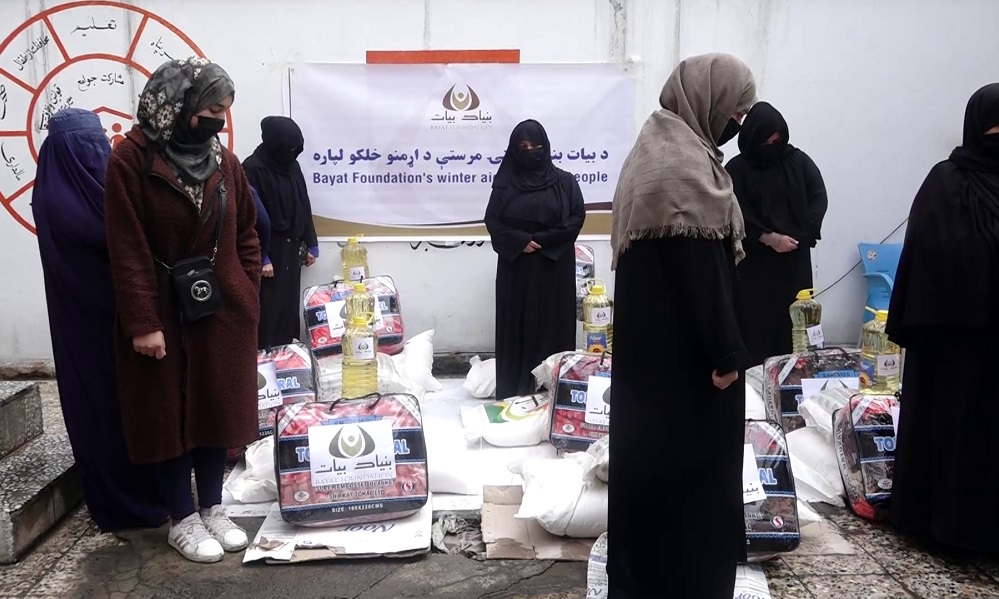
Dozens of needy families in Kabul’s fifth district have received essential winter assistance from the Bayat Foundation, as part of ongoing efforts to ease hardship during the cold season and worsening economic conditions.
According to foundation officials, the aid package includes staple food items such as flour, rice, and cooking oil, along with warm blankets to help families cope with freezing temperatures. Haji Mohammad Ismail, Deputy Head of Bayat Foundation, said the distribution began in Kabul and will soon be expanded to other provinces.
“Our assistance includes flour, rice, cooking oil, and blankets,” Ismail said. “Today, we started distributing these items in Kabul’s fifth district, and God willing, the aid will reach other provinces in the near future.”
Afghanistan continues to face widespread poverty, unemployment, and food insecurity, with many families struggling to meet basic needs, particularly during winter when access to work and heating becomes more difficult.Humanitarian organizations and charitable foundations have stepped up relief efforts to support those most affected.
Beneficiaries welcomed the assistance, describing it as a lifeline. “May God bless you for helping the poor. We had nothing and no work,” said one recipient. Another added, “Thank you for your help. Our flour was almost finished.”
Bayat Foundation officials stressed that winter aid distributions will continue in Kabul and other provinces in the coming days, as part of their broader commitment to supporting needy families across the country.
Latest News
Nearly seven million Afghan refugees return home since Islamic Emirate’s takeover
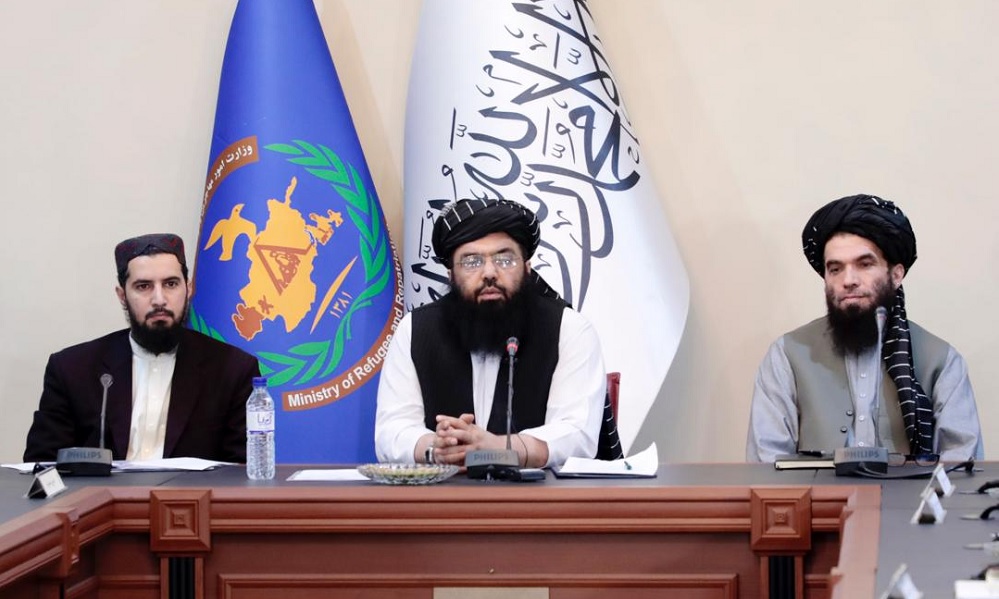
Since the Islamic Emirate came to power, approximately 6.8 million Afghans have returned home, either voluntarily or forcibly, from neighboring countries and other nations, according to the Minister of Refugees and Repatriation.
Mawlawi Abdul Kabir, speaking at a meeting on finalizing a draft plan for a permanent migration solution in Afghanistan, added that 1.3 million Afghans have been internally displaced due to natural disasters during the same period.
With winter approaching, widespread poverty and severe cold are threatening thousands of lives. Meanwhile, the forced expulsion of Afghan migrants from neighboring countries, particularly Iran and Pakistan, continues.
The Islamic Emirate has repeatedly urged neighboring states to allow migrants to return voluntarily. According to UNHCR, over two million Afghans have returned from Iran and Pakistan since the start of 2025.
-

 Latest News2 days ago
Latest News2 days agoAfghanistan signs 30-year deal for marble mining in Daikundi
-

 Latest News4 days ago
Latest News4 days agoAfghan border forces prevent illegal entry of hundreds into Iran
-

 Latest News3 days ago
Latest News3 days agoPakistan summons Afghan diplomat over deadly attack in North Waziristan
-

 Latest News3 days ago
Latest News3 days agoAfghan health minister calls for medical cooperation between Kabul and New Delhi
-

 Latest News4 days ago
Latest News4 days agoJapan allocates nearly $20 million in humanitarian aid for Afghanistan
-

 Latest News3 days ago
Latest News3 days agoKarzai urges reopening of girls’ schools and universities for Afghanistan’s bright future
-

 Health5 days ago
Health5 days agoAfghanistan seeks India’s support in standardizing traditional medicine
-
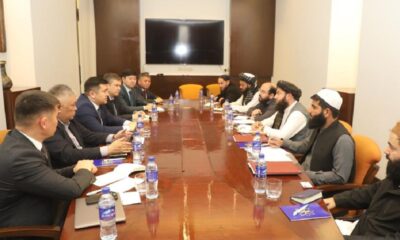
 Business5 days ago
Business5 days agoAfghanistan-Kazakhstan banking ties discussed in Kabul meeting
























